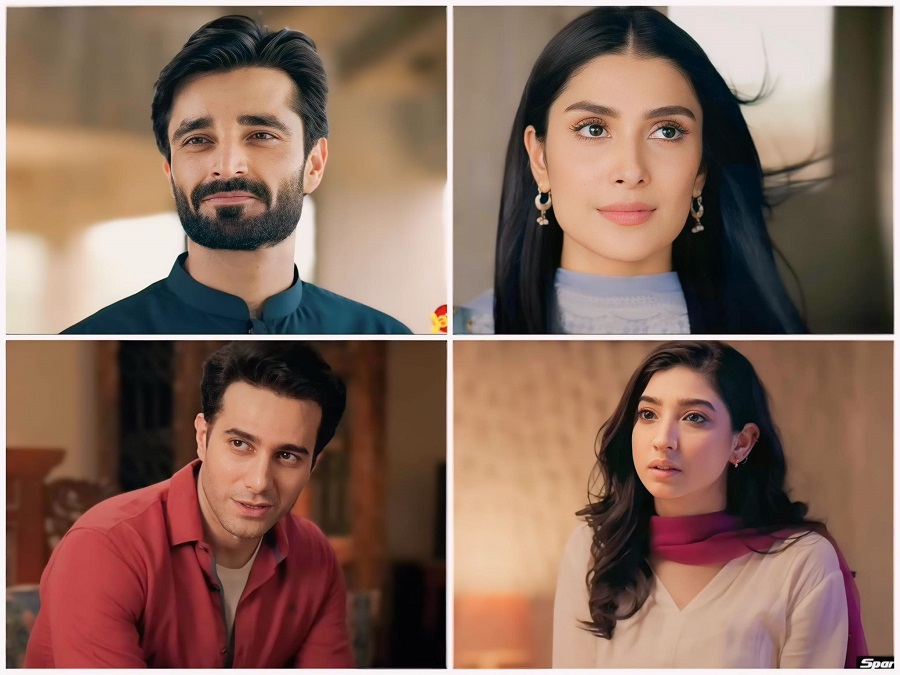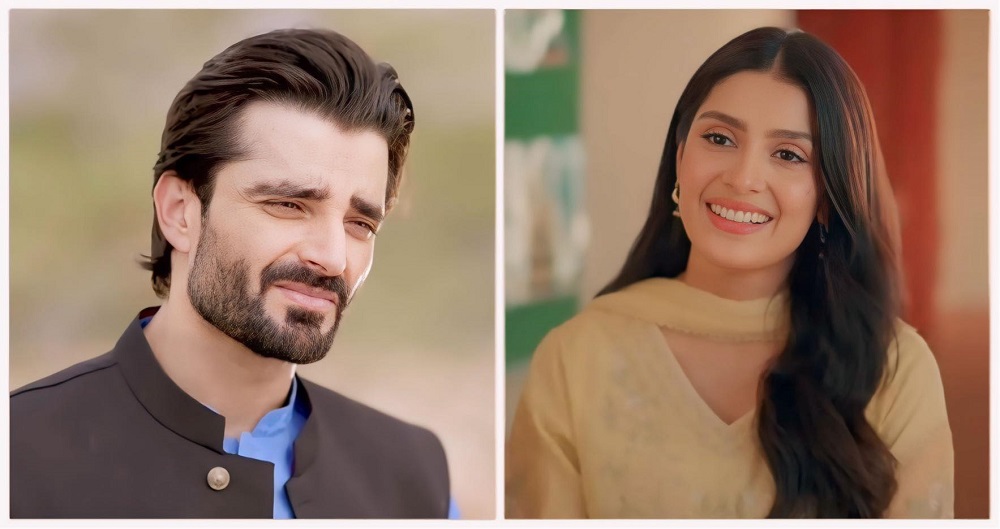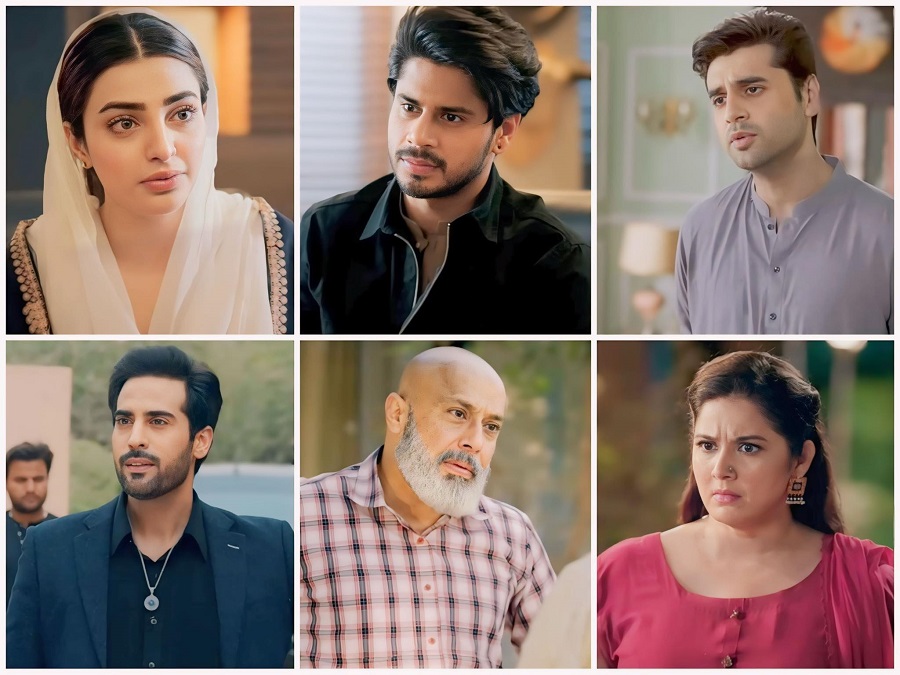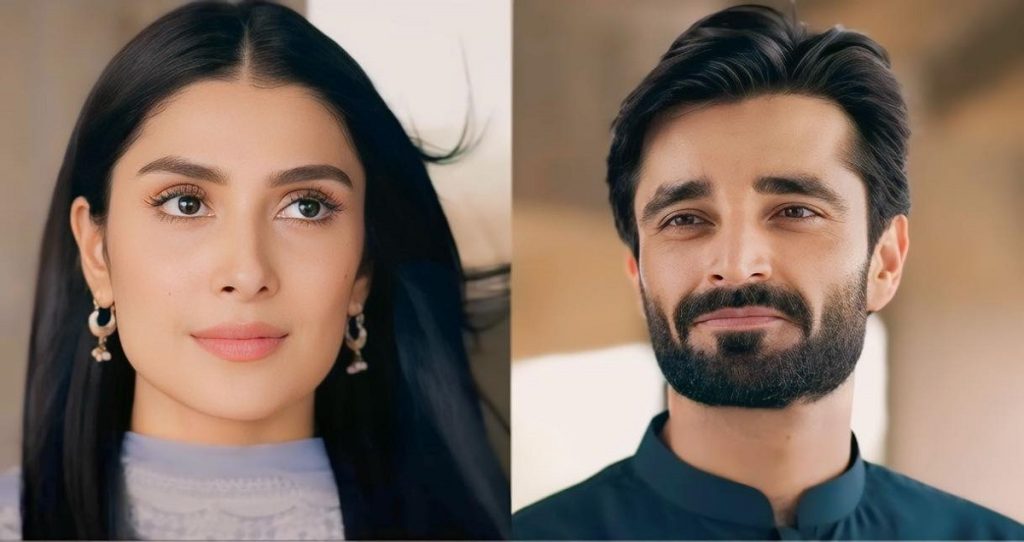After tuning into Jaan-e-Jahan with great expectations initially and being impressed by the opening episodes, I actually had to lower my expectations because the story went downhill with Murad Shah’s demise. However, I tuned into Jaan-e-Jahan every week since I last reviewed it hoping that it would give me something to talk about other than everything I had already penned down in my 6 episodes review.
Right from the start it was evident that Hamza Ali Abbasi and Ayeza Khan’s chemistry, along with the stunning cinematography, were the drama’s saving graces. Now after 26 weeks, my sentiments remain the same. After stagnating for 18 or so weeks, the plot has finally progressed.
Despite its weaknesses, the main track of Jaan-e-Jahan—the love story—remains the most relatively appealing aspect of the drama. Hamza Ali Abbasi and Ayeza Khan in particular always gave me a reason to root for them even at a time when I had completely lost interest in the drama. The chemistry between these two actors is undeniable, and I believe they have much more to offer. I would love to see them collaborate on a better project that truly allows their abilities to shine. The fact that even with such weak characterizations these actors have succeeded in maximizing their roles goes to show their strength and skills both individually and as an on-screen couple.

Shehram’s Journey
Shehram’s character has been hailed by many as the ‘good guy’ which the viewers are not used to seeing on screen. Often, whenever this character is criticized the fans argue that Pakistanis have become accustomed to watching toxic heroes and they’re finding it hard to embrace this character. As an open-minded viewer who is all for ‘good guys’ who are well-rounded, I found Shehram’s journey quite annoying for the most part. Shehram’s naivety never aligned with Murad Shah’s expectations of him. Murad, despite being a “good guy,” also possessed worldly wisdom and intelligence. If someone of Murad’s caliber placed so much trust in Shehram, it undoubtedly stemmed from reasons beyond mere moral goodness.
Even now when Shehram is well aware of everything, he is not doing ‘enough’. His leadership skills and assertive personality have been shown in some scenes but it has not been translated on screen with an intensity that would instantly convince viewers that he is indeed Murad Shah’s rightful heir. Had Shehram been a much younger man in his 20s, all of this would have made more sense.
When it comes to Mahnoor, Shehram can roar like a tiger and act accordingly too but when it comes to ‘his people’ his efforts are never emotionally charged. Enhancing this aspect of his personality with more emotional depth could have made his character much better rounded. Another weak aspect of this storyline is the individuals surrounding Shehram, particularly his support system. Serious communication barriers which were entirely illogical throughout were obvious flaws that made it really difficult for me to ‘look away’. Shehram’s father’s lawyer friend could have served as a significant mentor figure, yet this role was assigned to Mahnoor, a decision I believe was less than ideal. Mahnoor’s role as the savior has not been the best part of this love story.
It’s always disheartening watching the good characters being dumbed down for weeks, just to elicit sympathy from the audience. The fact that Shehram shows little concern for the factory and business Murad Shah dedicated his life is perhaps the most illogical aspect of the entire drama. Shehram has been ‘trying’ and ‘struggling’ for long enough now, now that he has come into his own, we need to see more ‘action’!

The heartwarming and captivating scenes featuring Shehram and Mahnoor in Jaan-e-Jahan owe much of their charm to the undeniable on-screen chemistry between Hamza and Ayeza, rather than the strength of the script itself. Shehram’s interactions and bond with his younger brother Abdul are equally as compelling as his scenes with Mahnoor. It’s a shame we don’t get to witness more of this emotional depth in Shehram’s connections with those close to him. Expanding on these relationships could have added a richer layer to the character’s development.
Mahnoor’s Journey
Initially, I thought that it was a great idea that for a change a woman was going to save a man, that’s something we don’t get to see in Pakistani dramas often. However, Mahnoor’s track is just as shallow as that of Shehram. She is a good person at heart and has great aspirations as well but just like Shehram’s track her character is not well-rounded. There have been numerous instances where Mahnoor’s character became challenging to empathize with. Her relationship with her parents could have been portrayed in a more nuanced and compelling manner as well.
Even though the school has been the focus of attention for many weeks now, the way the progress regarding the school has been covered on-screen is anything but convincing. Also, Mahnoor’s ultimate sacrifice right now is the most run-of-the-mill twist in the story. Had Shehram watched desi films, movies, and dramas he would have understood why Mahnoor said yes to this proposal!
Overall, similar to Shehram, Mahnoor’s character lacks the expansive landscape and depth needed to fully explore her journey. While her potential appears promising on paper, the execution falls short, leaving her actions feeling insufficient or disconnected from the ambitious persona her character is meant to embody.
Taimoor – Collateral Damage
Taimoor’s character in the drama seems to function as a third wheel, lacking a compelling storyline or significant development within his own track. He appears to be sidelined without much substance to his role. While Taimoor is undeniably one of the ‘nice guys’ in the drama, characterized by his unwavering kindness, his overall appeal remains somewhat questionable. Despite his genuine intentions, there seems to be a lack of depth or intrigue surrounding his character that may leave me questioning his significance within the storyline. Apart from serving the purpose of creating a love triangle and leaving viewers pondering over Mahnoor’s ultimate romantic choice, Taimoor’s character seems to lack substantial depth or individual storyline development.
Emmad Irfani undoubtedly shines on-screen, embodying his character with finesse. However, it’s unfortunate that his storyline is as unremarkable as those of the other characters, failing to offer him the opportunity to truly showcase his talent.

Is Kishwar not getting the message?
Kishwar was introduced as an evil manipulator who was capable of murder. The murder in particular turned her into a vile character. The most important aspect of this character has to be the way she made Shehram believe that she wanted nothing but the best for him and the way she hid her hatred for Murad Shah all these years. This vile hatred of hers for these two individuals is the cornerstone of her track yet we don’t know why she is like that. A backstory about her past or more about her personality would have added some depth to this track as well.
Even though Kishwar is an extremely clever person, she has been unable to figure out the extent of Shehram’s knowledge about her actions and act accordingly. She has removed people from the haveli who were a danger but one would expect someone like her to do more than just that!
Savera Nadeem is an exceptional actress but I do feel she has delivered even more remarkable performances in other roles throughout her career.
Supporting Characters & Tracks
The supporting characters in Jaan-e-Jahan suffer from a lack of depth and development, similar to the main leads. Their storylines are not adequately fleshed out, contributing to the overall weakness in their tracks. For example, Zeenat performed a commendable act, but afterward, she seemingly disappeared from the storyline. Surprisingly, Shehram didn’t even make an effort to express gratitude or acknowledge her contribution. While it’s likely that Shehram will eventually express gratitude, the delayed responses and developments in Jaan-e-Jahan have undeniably disrupted the flow of the story on multiple occasions. Such delays have hindered the overall narrative progression and affected the engagement value of the drama. Zeenat could have called Shehram but she chose to call Mahnoor – one more instance when Mahnoor was forced into the situation!
Mahnoor’s relationship with her father in the initial episodes was one of the many aspects of this drama that attracted me but as the story progressed this relationship also took a typical turn. Not only this, this is one of the many aspects of the story that could have been attractive had it been explored more.
Tabraiz and Gulzeb’s track leaves a lot to be desired as well. Apart from Nawal Saeed’s made-up look which makes absolutely no sense, Gulzeb’s memory and decisions both are plotholes that could easily have been avoided. I don’t find myself looking forward to this track.
Final Remarks
In my view, the hype surrounding Jaan-e-Jahan can be attributed to the charisma of the main leads and the visual appeal of the drama. A significant portion of Pakistani drama viewers gravitate towards love stories featuring a star-studded cast and visually appealing production values. Besides Khaie, it’s evident that dramas with substantial content are not garnering comparable viewership to romantic narratives.
While I appreciate a good romantic story, even if it’s somewhat typical, I prioritize depth and logical coherence in the narrative. Jaan-e-Jahan is seriously lacking in that department. I still root for Shehram and Mahnoor which proves how good Hamza Ali Abbasi and Ayeza Khan are as an on-screen couple. I must confess that most often I make a conscious effort to tune into this drama every week. On the other hand, I find myself looking forward to and eagerly waiting for dramas such as Khaei and Khushbo Mein Base Khat. The popularity of Jaan-e-Jahan serves as a sad reminder that content may not always be the decisive factor for success, which is a disappointing realization.
